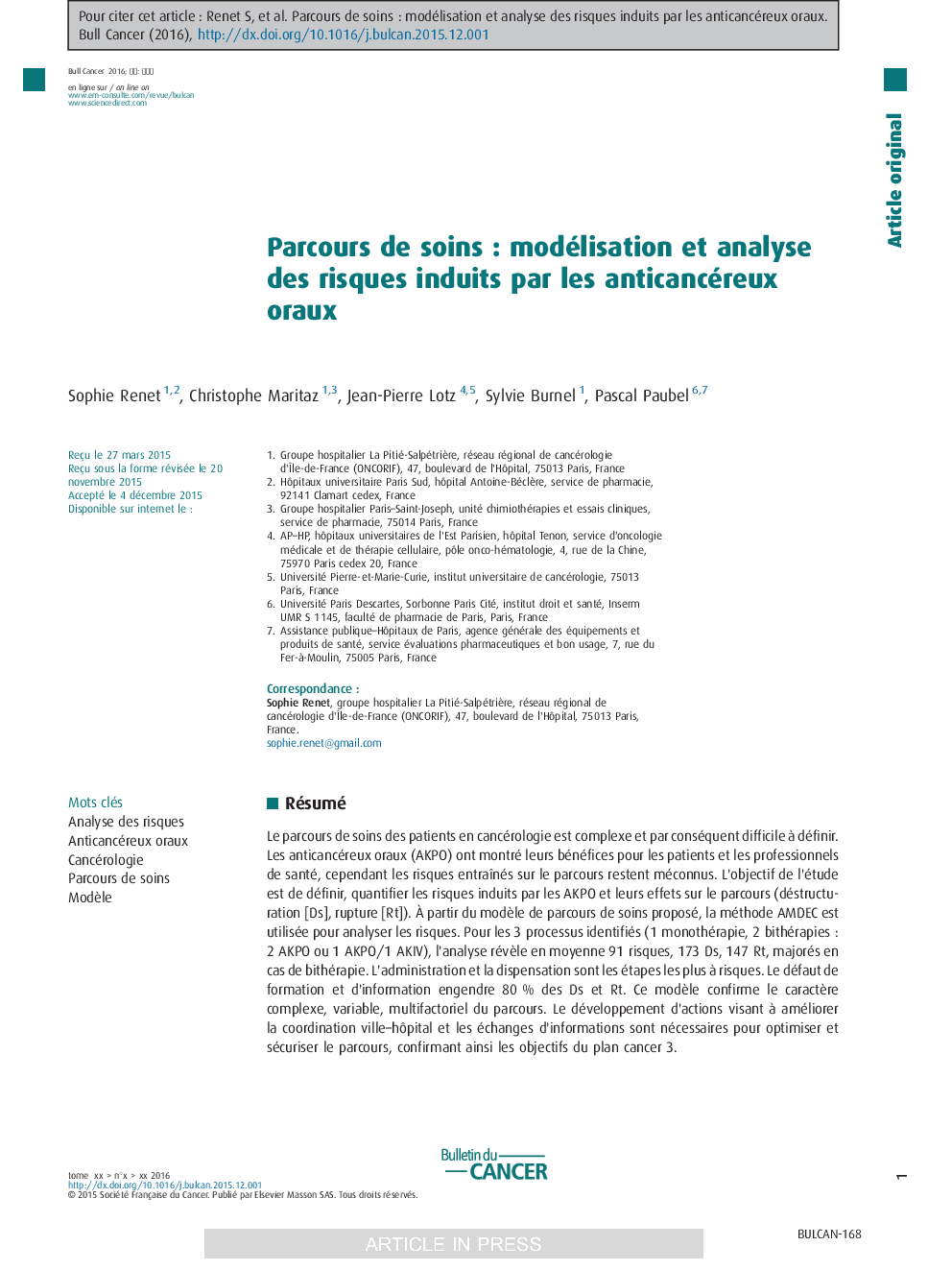| Article ID | Journal | Published Year | Pages | File Type |
|---|---|---|---|---|
| 6190111 | Bulletin du Cancer | 2016 | 8 Pages |
Abstract
The care pathway of cancer patients is complex and therefore difficult to define. The oral anticancers (AKPO) have shown their benefits to patients and health professionals, however, the risks induced on the care pathway remain unknown. The objective of the study is to define, quantify the risks from AKPO and their effects on the care pathway (breakdown [Ds], rupture [Rt]). From the proposed care pathway model, FMEA method is used to analyze risks. For the 3Â identified processes (1Â monotherapy, 2Â bitherapies: 2Â AKPO or 1Â AKPO/1Â AKIV), analysis revealed an average of 91Â risks, 173Â Ds, 147Â Rt, increased for 1Â AKPO/1Â AKIV therapy. The administration and delivery are the most risky steps. The lack of training and information of patients and healthcare professionals generates 80% of Ds and Rt. This model confirms the complexity, variability of the care pathway. The development of actions to improve town-hospital coordination and exchange of information is required to optimize and secure the route, confirming the objectives of “Plan Cancer 3”.
Related Topics
Health Sciences
Medicine and Dentistry
Oncology
Authors
Sophie Renet, Christophe Maritaz, Jean-Pierre Lotz, Sylvie Burnel, Pascal Paubel,
